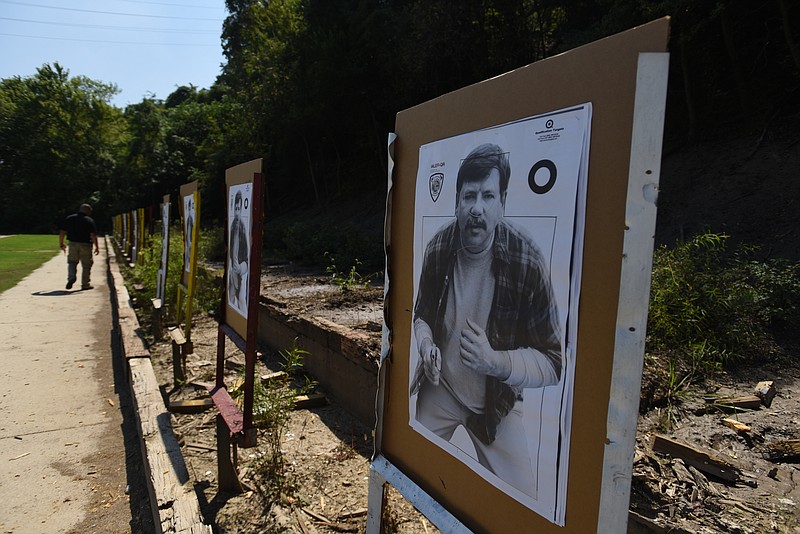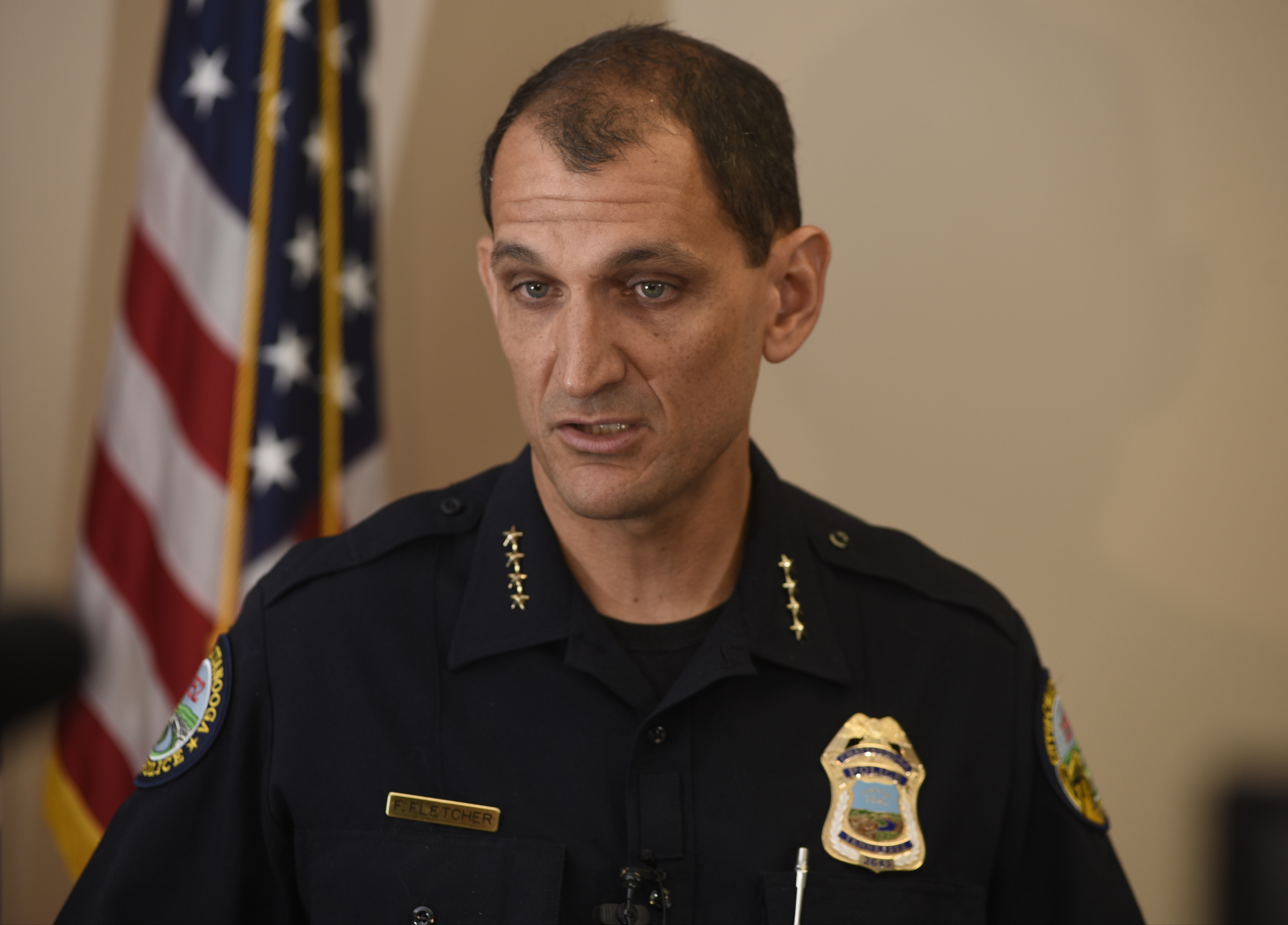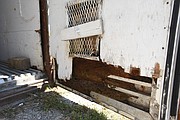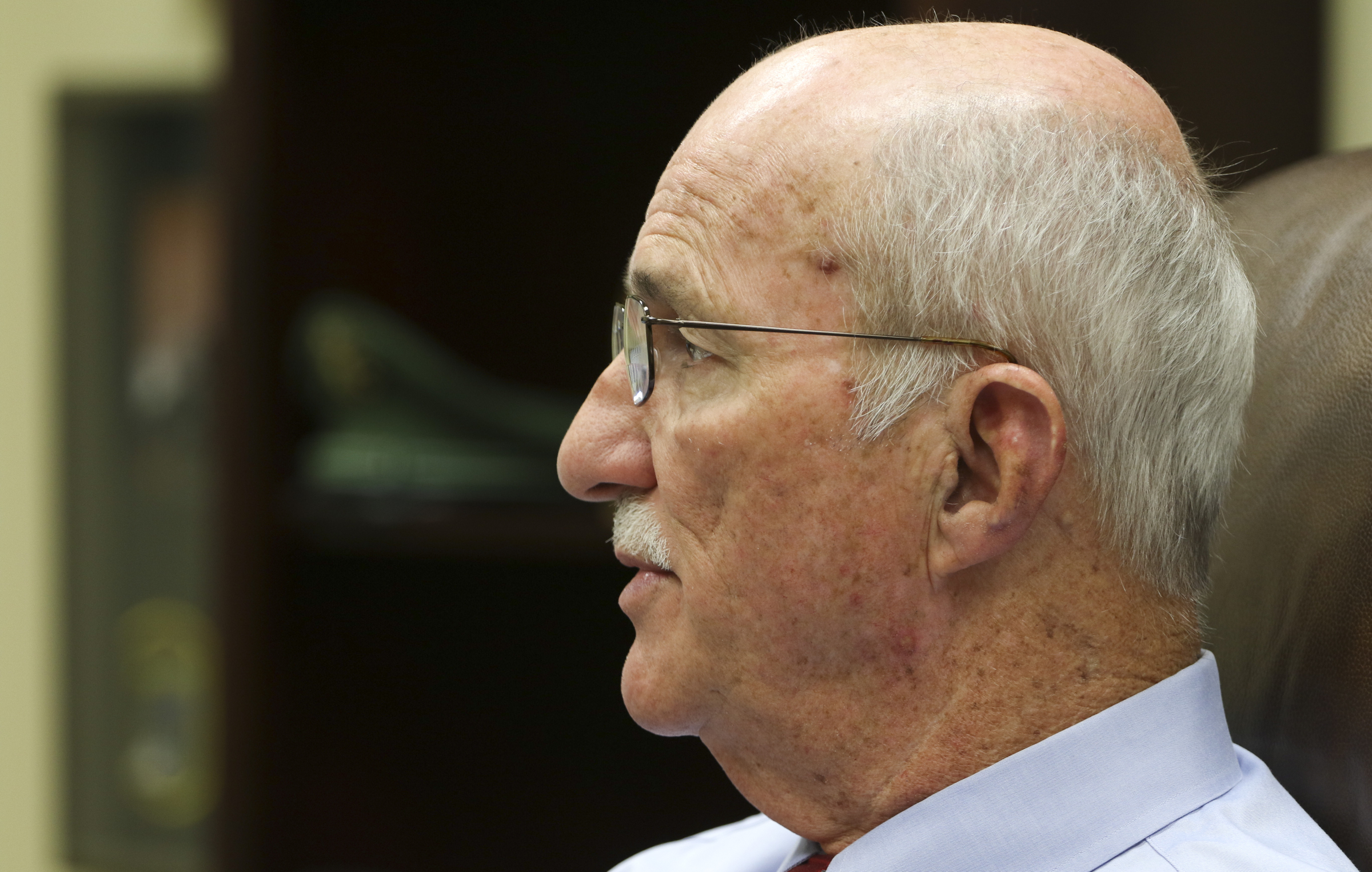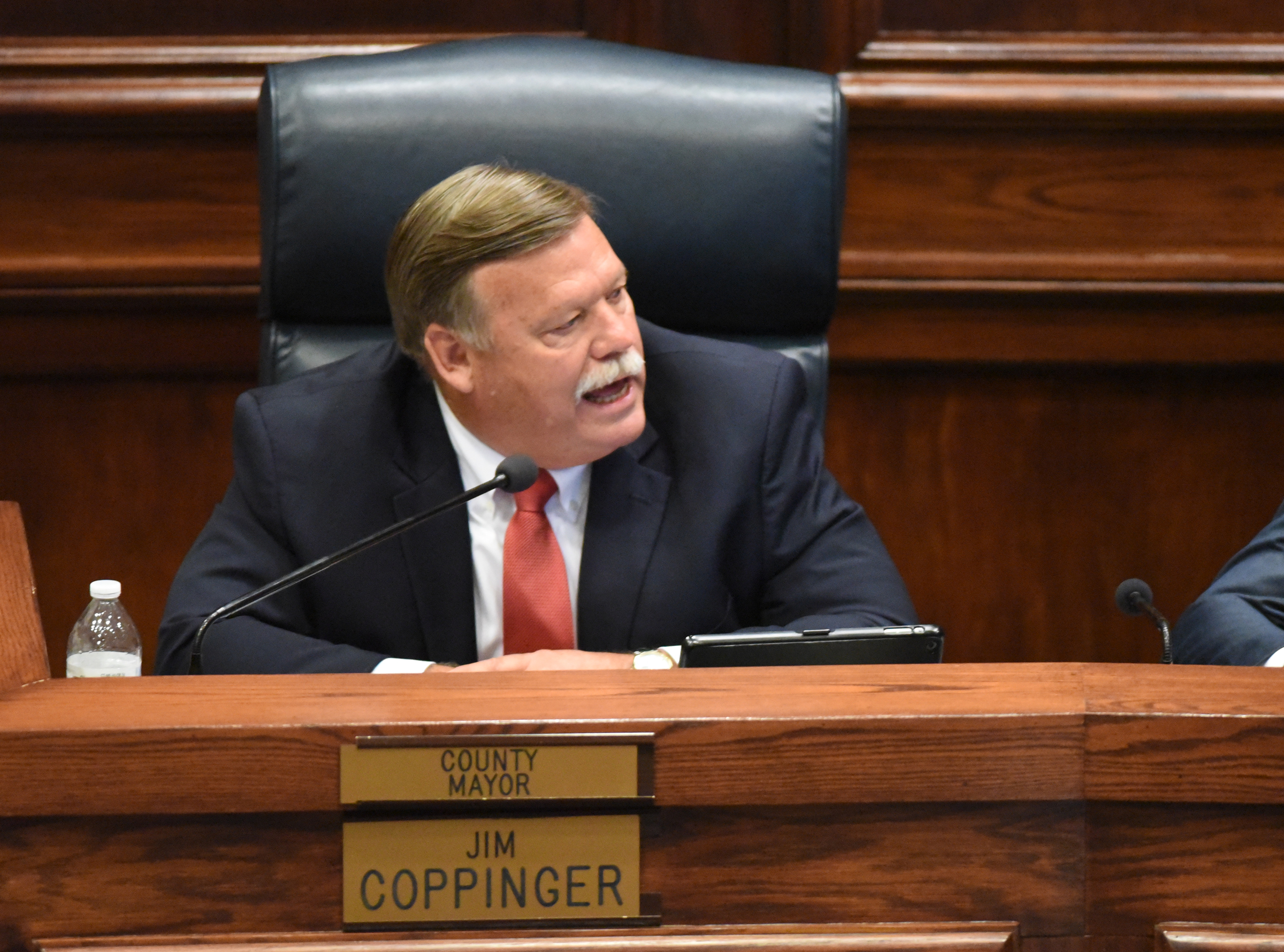We could easily come out of compliance, and we could fail to exist as a police department.
If you go
The Chickamauga and Chattanooga National Military Park is holding two public meetings to hear comments from residents about future plans at the Moccasin Bend Archeological District. Times and places are:* 3 to 6 p.m. Oct. 20 at the future Moccasin Bend Gateway on Hamm Road* 4 to 7 p.m. Oct. 22 at Outdoor Chattanooga in Coolidge ParkSource: National Park Service
Local, state and federal officials all agree that the law enforcement firing range on Moccasin Bend needs a new home. But after decades of promises, debate and a false start, local police say the gun range immediately needs about $300,000 in repairs and upgrades.
Nobody's happy about it, but Chattanooga Police Department Chief Fred Fletcher says if the repairs aren't made, local officers could lose their authorization to carry weapons and enforce the law.
Metal targets that used to move are covered with rust and don't work. Electrical boxes that run various systems at the range are dry-rotted. Lights no longer burn, and restroom facilities are in various states of disrepair.
Fletcher says police need moving practice targets to keep up with state and federal standards. They also need to be able to train at night, and federal Occupational Safety and Health Administration standards require working bathrooms for officers.
"We could easily come out of compliance, and we could fail to exist as a police department," Fletcher said Thursday.
Sheriff Jim Hammond said the same thing. Local politicians have "kicked the can down the road" for too long, he said.
"It's gotten to the point where we have to make improvements," Hammond said.
To address the problems, Fletcher, Hammond and other city and county officials have agreed the agencies should split the estimated $300,000 bill. The expenses would have to be approved by the Chattanooga City Council and the Hamilton County Commission.
Hamilton County Mayor Jim Coppinger said Thursday he understands the need to keep police trained. But he still wants the range moved as soon as possible.
The city and county agreed in 2003, with prodding from state and federal officials, that the firing range would be moved and the land given over to the National Park Service to become part of the Moccasin Bend Archaeological District.
"Whatever we spend over there, first, should be minimal, and second, we should be able to take any of what we buy with us when we leave," Coppinger said.
SHOOTING RANGE MISFIRE
The decision to repair the 33-acre tract was actually made more than a year ago, when city and county officials abandoned a plan to build an indoor range in the 700 block of East 12th Street in downtown Chattanooga.
Local police were all for the proposed 24,000-square-foot downtown range, but the plan was ditched after Hamilton County commissioners refused to pay an extra $550,000 when Franklin Associates Architects told them the original $4 million price tag needed to rise by $1.05 million.
The city and county governments had agreed to pay $1.5 million apiece, and $1 million was being covered by a federal grant. Taxpayers had already paid $250,000 toward the building's design.
Commissioners told the architects to design a $4 million building as they were hired to do. Police balked at the downsized version, saying it was insufficient to train the combined 1,200 county and city police officers.
Once the plan was abandoned, officials decided to put money toward the Moccasin Bend upgrades. And they went back to the drawing board to find a new place for a new range.
TAINTED LAND
Adding to concerns about the cost of a new range, the city and county are on the hook for cleaning 40 years' worth of lead out of the Moccasin Bend range for about $1.2 million.
That's because the federal government can't accept land that is environmentally impaired, according to a directive from the U.S. Department of the Interior.
An environmental report released in October 2014 found that about 6,147 tons of surface soil across five areas on the range contain more than 400 mg/kg of lead - the U.S. Environmental Protection Agency's acceptable limit for the site.
Subsurface soil and groundwater checked out OK. But the report showed that stormwater and drainage ditches are likely dumping lead-tainted surface water from the site into the Tennessee River, which serves as a drinking water source for towns west of Chattanooga to Paducah, Ky.
Lead poisoning can impair learning and behavioral development in children and cause nerve and organ damage in adults, according to the U.S. Centers for Disease Control and Prevention.
Brad Bennett, superintendent of the Chickamauga and Chattanooga National Military Park, which includes Moccasin Bend, said groups are hoping to mitigate the cleanup cost to local taxpayers.
"When the move of the range is underway, the Friends of Moccasin Bend have a standing offer to the city and the county to help look for possible grants to help with the land remediation," Bennett said.
He said Friday he also is sympathetic to the needs of local police, but park officials need to know how soon the land would be available. They are in the midst of the park's 20-year strategic planning.
"We all certainly agree that public safety is paramount. We all agree our law enforcement personnel deserve the best possible training, and the question is: Is a national park the best possible place to provide that training?" Bennett said.
The park service is gearing up for two public meetings to determine alternatives for managing the park, he said.
Participants will discuss plans for the long-proposed visitors center, future trail placement and potential river launch points for the Tennessee River Blueway.
"We want people to let us know what they'd like to see in their national park," Bennett said.
Contact staff writer Louie Brogdon at lbrogdon@timesfreepress.com, @lbrogdoniv on Twitter or at 423-757-6481.
